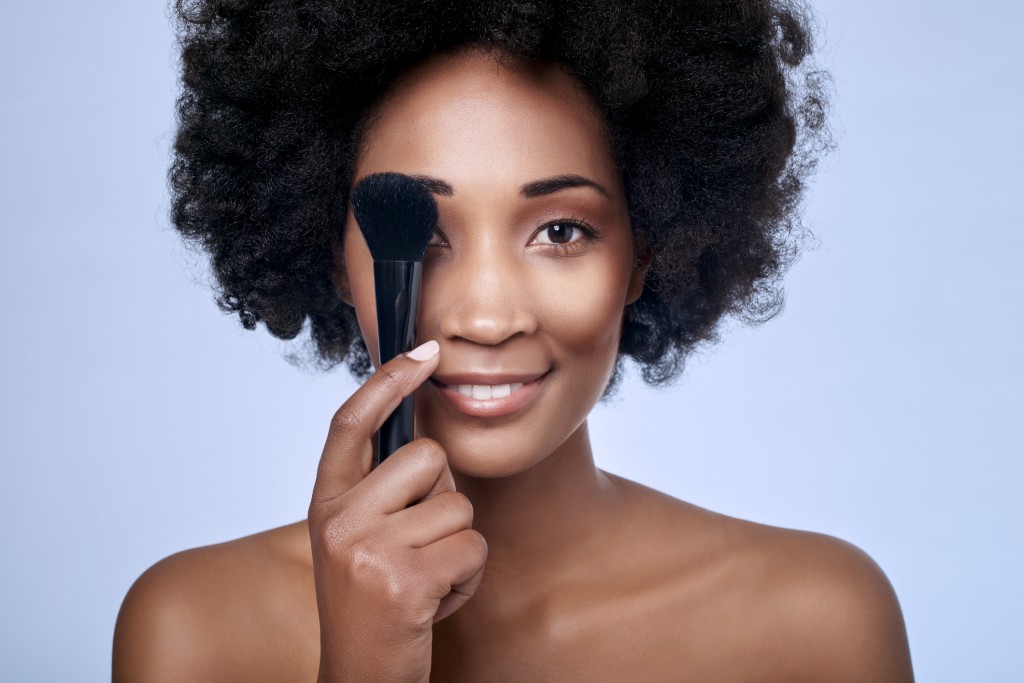Hazardous Choices Dominate Cosmetics


In a growing market for Black cosmetics, Black women nonetheless have limited choices for products that score low in potentially harmful ingredients, an EWG analysis of more than 1,100 products found. Because Black women appear to buy and use more personal care products, the limited options could mean they are being exposed to more potentially hazardous chemicals.
EWG researchers analyzed more than 1,100 products, looking at the hazards posed by their ingredients, and found that Black women had fewer healthy options based on the products marketed to them. Fewer than 25 percent of the personal care products marketed specifically to Black women rated well in EWG’s Skin Deep® database, compared to 40 percent of those available to the general public. Skin Deep is a free online database and app where Americans can learn what’s in the products they use on their bodies every day.
“We’ve assessed the health and safety of tens of thousands of personal care products for more than 12 years, but we wanted to broaden Skin Deep to include products specifically marketed to Black women,” said Nneka Leiba, EWG deputy director of reaearch. “As a Black woman, I was excited to see more of the products I use each day in Skin Deep, but disheartened to discover that there are fewer options for healthier, less hazardous products marketed specifically to women like me.”
“When it comes to beauty, there are no color lines,” said Tenya Steele, director of environmental health for WE ACT for Environmental Justice. “Every woman, in every culture, within any racial group, can agree that the desire to look and feel beautiful is universal. EWG’s report offers the sound, empirical, scientific data needed to arm minority women with the necessary information to make better health choices and to avoid unnecessary toxic exposures in hair and other personal care products.”
EWG found that the worst-scoring products marketed to Black women are hair relaxers, and hair color and bleaching products. But even in other categories such as concealers, foundations and sun-protective makeup, no product analyzed scored “low hazard” in Skin Deep.
“Many of the hair relaxers and dyes are multi-step products that increase the chance of being exposed to hazardous chemicals,” said Paul Pestano, EWG senior database analyst. “Some of the hair lotions and styling gels contain ingredients of concern like parabens, formaldehyde-releasing preservatives and ‘fragrance.’ In fact, half the products we reviewed contained ‘fragrance,’ which factored into the higher, red scores in Skin Deep.”
“Fragrance” is a vague catchall term for about 3,000 ingredients found in many personal care products. Unless the specific ingredients in a fragrance mixture are listed on product packaging, consumers can’t know if any of the chemicals are linked to endocrine disruption, allergens or other health issues.
“This report makes clear the lack of safer alternatives for Black women,” said Jamie McConnell, director of programs and policy for Women’s Voices for the Earth. “Demand for these products is increasing and the cosmetics industry needs to provide healthy beauty options for Black women.”
Some of the ingredients found in the products evaluated have been linked to serious health impacts like cancer, hormone disruption, reproductive and developmental damage, and allergies.
“Black women and girls need resources that shed light on the chemicals and toxics used in our personal care and hair products,” said Nourbese Flint, policy director for Black Women for Wellness. “Adding more than 1,100 products primarily marketed to Black women to EWG’s Skin Deep is a critical step forward in providing much-needed information to consumers.”
While this report focuses on products marketed to a specific demographic, it tells a story that is consistent across the entire cosmetics market. Cosmetics are woefully underregulated and companies are not required to test their products for safety before they hit store shelves.
Until the laws are strengthened, consumers should choose products that score well in Skin Deep and support companies that have reformulated to make their products healthier. If a favorite product scores poorly, consumers should contact the company and tell it to do better.